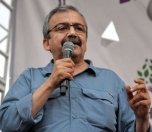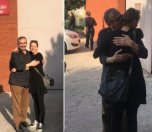Click to read the article in Turkish
Peoples' Democratic Party (HDP) former MP Sırrı Süreyya Önder has spoken to journalist Kemal Göktaş in four-part podcast series "Sırrı Süreyya Önder Tells" published on Kısa Dalga (Shortwave) Podcast.
Önder has commented on a series of issues such as the resolution process for Kurdish Question, his trial and days in prison, his views on new political entities as well as his new projects in cinema and literature.
The first part of the podcast was published yesterday (January 8).
200 books in 11 months
Released from prison on October 4, 2019 after serving 11 months behind bars, Önder has given his first interview to Göktaş.
Önder said that he entered prison prepared and used this period as an opportunity to read and think.
Having read or skimmed over 200 books in 11 months, Önder told Göktaş that he found the opportunity to think and take notes, penned a novel and read especially on Syriac and Armenian issues for his novel.
Why didn't he have a surgery?
Indicating that he decided to have a surgery while he was in prison, Önder said that the physician he went to told him, "We like you as a person. Trust us, how we do it is our job. But, what are you doing in that dishonorable party?" Önder gave up having the surgery after that.
'Our intention was real, our strength didn't suffice'
Referring to the Future Party, which has been recently founded by the ruling Justice and Development Party's (AKP) former Prime Minister Ahmet Davutoğlu, Önder stated the following in brief:
"Let me tell you as someone who took part in the process: After Mr. Davutoğlu took over responsibility, everything started going downhill.
"Our failure to turn peace into a social request is one of the biggest reasons why this process ended. Because it is the state, it has a thousand-year customary practice, it is monistic, masculine and all. We already know that.
"We haven't discovered it today, but the skill that we were to display was to open a peace corridor from this crack. To be righteous, I start to do it from ourselves, because the ones who struggle for peace cannot have excuses.
"If that is an excuse, then, we could have found ways and methods to overcome that as well. We could not socialize peace, our strength did not suffice, our means were limited. It is a matter of intention and strength. Our intention was real, but our strength did not suffice."
* Click here to listen to the first part of the interview (in Turkish)
(EKN/SD)




.jpg)

